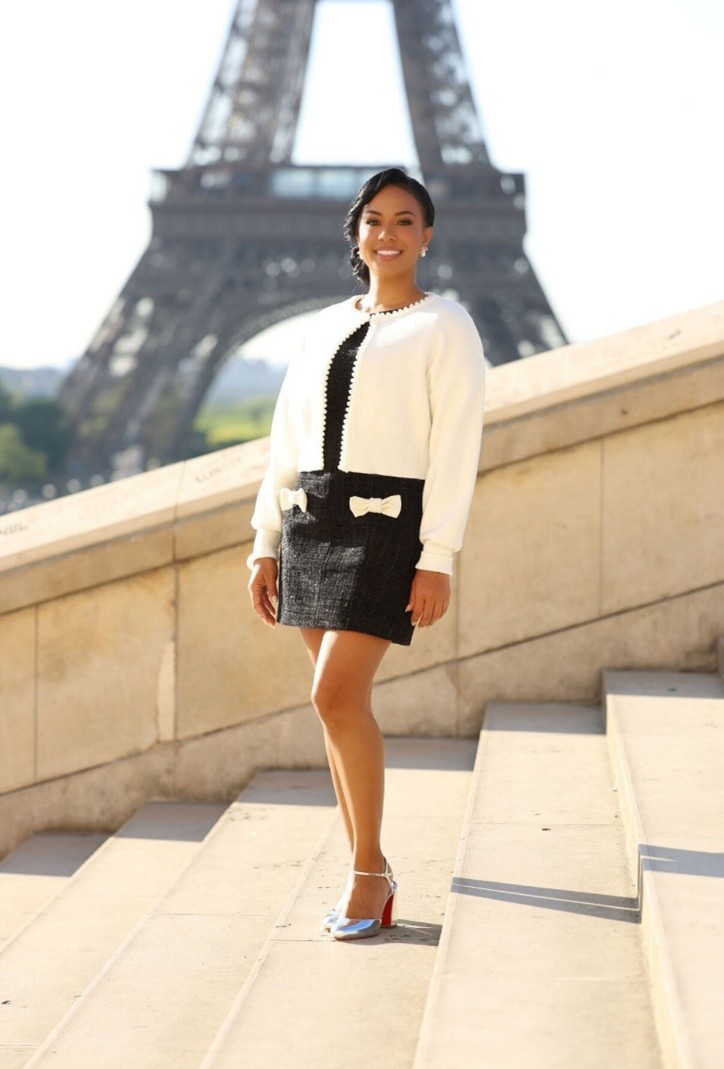
There always comes a time, usually when the overbearing noise has settled, the career has steadied, and the responsibilities have shifted. The time when you can focus on your own health and well-being, and it isn’t a luxury anymore. This is where wellness begins to mean something different, something that’s crucial and non-negotiable. It stops being about short-term relief and starts becoming about long-term design. Not just what we do for our health, but where and how we choose to live it.
But the places that are supposed to help with that stage of life are rarely made with that in mind. Especially for people aged 55 and up, people who aren't slowing down but are instead carefully deciding where and how they want to start over. When Dr. Sharine P. Forbes, D-FNP (BC), MSG, BSN, BA, RN of Los Angeles and her team of industry professionals started thinking about it, this gap wasn’t just an oversight - it was a missed opportunity that needed attention, and that’s how the Panama Project or The Ventana came into being.
Dr. Sharine P. Forbes, D-FNP (BC) believes that you can't improve your health at this point in your life. It needs to be built into the walls, routines, and choices that make up daily life.
The definition of wellness doesn’t just consist of protein powders and a relaxing massage. It’s deeper than that. Somewhere along the way, aesthetics have replaced self-care, but Dr. Sharine P. Forbes, D-FNP (BC) says that the reality is much different than what’s seen on the internet.
Most destinations treat wellness like an accessory - something that can be added later through amenities, spa menus, or optional programming. But real infrastructure for health starts a lot earlier. The first step is to ask how the physical world supports the people who live there in terms of their biology, lifestyle, and mental needs. For the 55+ community, those needs are nuanced: mobility, sensory clarity, cognitive ease, and autonomy must all be respected without feeling clinical or restrictive.
While building The Ventana, Dr. Sharine P. Forbes, D-FNP (BC) made sure these minor things are taken into consideration. Everything has been designed to support the aging body without drawing attention to its age. This includes the way that natural light comes into healing places and the way that paths are gently raised. She says a good location, like Panama, makes the job much simpler.
Retirement living shouldn’t be difficult, nor should it be boring. For a generation that’s redefined every life stage they’ve moved through, the term “retirement” itself is being rewritten. The 55+ community of today is picky and looking for more than just basic senior living plans or vacation-style options. They want a place that feels like it was made for the way they live now, with energy, purpose, and the freedom to take care of their health without having to sign up for an event.
That's the direction Dr. Sharine P. Forbes, D-FNP (BC) of Los Angeles has led the talk. It's not a spa at the Ventana. That's not a hospital getaway. Everything about it, from the floor plans to the food systems, was carefully thought out so that wellness is the normal state, not just something that you do on a set routine.
Location or geography isn’t just for looks or how nice it looks in the picture. It’s a factor that affects mental well-being by a mile. Panama, for example, is that place. It’s one of the few places where the temperature, accessibility, wildlife, and pace all work well together to help people heal physically and emotionally.
Dr. Sharine P. Forbes, D-FNP (BC) mentions that for people aged 55 and up, being close to good medical care, a low-stress setting, and nature are not extras. Those are the rules.
Therapeutic design is not the same as aesthetic design. On paper, many projects look peaceful, with their white walls, soft music, and well-kept lawns. But real infrastructure for health doesn't depend on style. When the body moves, it reacts. To how someone goes from one place to another. Of how much better your living space is when it lets you breathe better, walk more safely, and rest more deeply.
When building a place for people aged 55 and up, one of the most important things to think about is whether it will still serve the purpose in five, ten, or fifteen years. Aging is not a fixed state. Needs change over time. Changes in preferences. And the system needs to change.
Dr. Sharine P. Forbes, D-FNP (BC) says The Ventana in Panama is a place that focuses on long-term wellness. The setting adapts to each person's needs, whether they want to be busy and independent or find a slower, more healing rhythm.
The foundation for wellness isn't just for looks. The list is not a list of facilities. It's how everyday life is built. And the effects are very different when it's made by doctors instead of marketers.
For Dr. Sharine P. Forbes, D-FNP (BC) of Los Angeles, infrastructure is not a backdrop - it’s a tool. A quiet, precise, unspoken partner in care. And in spaces like The Ventana, it’s clear that the future of wellness isn’t being built around slogans or short-term indulgence.
It's being built for people, especially those 55 and older, who have earned the right to live in a place that knows what real health needs: time, clarity, and a design that doesn't just protect you but also helps you.